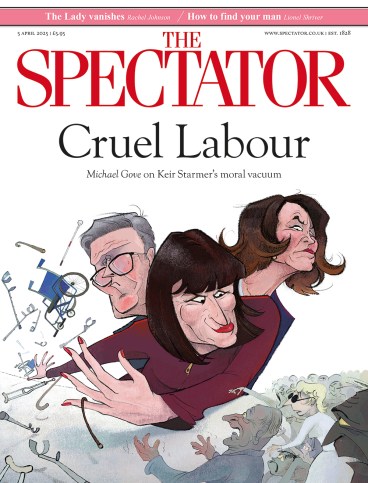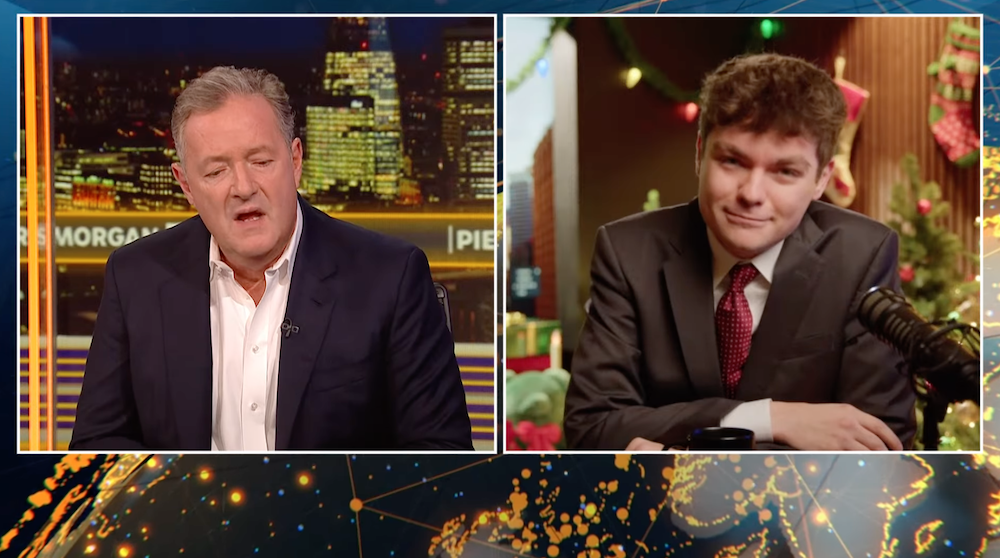
John Higgs begins his foray into the long-standing BBC television science fiction series Doctor Who with a personal anecdote about going to the pub with Tom Baker, the notoriously bibulous actor who played the part of the Doctor from 1975 to 1981 – still longer than anyone else. For me, as for Higgs, Baker was ‘my doctor’. He was the one I first watched as a child and who instantly comes to mind whenever I think about the character: sonic screwdriver, long stripy scarf, bags of jelly babies and tin dog companion. At the height of his Who fame, Baker turned, as Higgs doesn’t shirk from saying, into a ‘monster’, behaving appallingly on set and off. And, having become typecast by the role, he clearly struggled, mentally and professionally, in its aftermath. His disastrous real-life marriage to his co-star, Lalla Ward, during his final season, Higgs suggests, looks like the desperate act of a ‘man trying to cling to the Doctor even as he knew his time was up’.
But then the Doctor, like Sherlock Holmes, is a role that has sometimes extracted a heavy price from those called to play it. And like Holmes, Higgs argues, the Doctor at this juncture is closer to a national folk hero, the stuff of near legend and myth, than a fictional creation from a cheaply made TV series.
Yet the programme that spawned the character was nearly canned before a single episode ever aired, and the figure of the Doctor, it turns out, was practically an afterthought. So much so that when the first Doctor, William Hartnell, went on holiday, stories ran without him, much in the way that whole series of Blake’s 7, created by the former Doctor Who scriptwriter Terry Nation, subsequently passed minus its namesake.
‘It is,’ Higgs writes, ‘a silly name, if we are honest’ (and was nearly the even sillier Mr Who). But had it been called The Time Machine, he maintains, we might never have seen Sylvester McCoy or Jodie Whittaker or any of the other Doctors on our screens. As it was, the whole thing owed its existence to a gap in BBC television’s Saturday evening schedule between the end of its flagship sports programme Grandstand and the beginning of the pop hit-picking panel show Juke Box Jury. What was sought was a family serial that might appeal equally to football-mad dads and their with-it teenage offspring. The unlikely answer was a science-fiction adventure, envisioned as something akin to the police drama Z-Cars, but in outer space and with time travel thrown in.
Aside from the Tardis, that galaxy- and century-hopping blue police box, the one true constant, almost nothing about the show has ever really stayed the same. Higgs does a meticulous job of tracking the additions and subtractions to the Whovian mythos, from the number of the Doctors’ hearts to the shifting home planet of the Cybermen, without, thankfully, getting too bogged down in nerdish detail. He reaches heavily here into the biographies of its lead actors, with mostly illuminating results. This allows him to write far more generously than otherwise might be possible about the sixth Doctor, Colin Baker, who, by general consensus, was lumbered with the worst costume and some direly misogynistic scripts at the show’s mid-1980s nadir.
The Doctor, like Sherlock Holmes, is a role that has sometimes extracted a heavy price from those called to play it
Off camera, Hartnell might have been an ill-tempered bigot, fond of the bottle and a flutter, but he’d endured a grimly Dickensian childhood. And Higgs is haunted by the similarities of his iteration of the Doctor, with teen granddaughter Susan in tow, and the equally unnamed grandfather and Little Nell in The Old Curiosity Shop. The dandyish Jon Pertwee, on the other hand, who starred in the series when it was at its most Bond-like in the early 1970s, had been in naval intelligence in the war with Ian Fleming. The current occupant of the Tardis, the Rwandan-born Ncuti Gatwa, is, like the Time Lord he plays, the survivor of a genocide.
Shoestring budgets at the BBC sometimes proved the biggest boon to creativity, ensuring that the Daleks would menace the universe with sink-plunger arms and flashing lights, originally fashioned from ping-pong balls, on their heads. Ultimately, such penny-pinching was to reduce Doctor Who to a joke in the flashier telly landscape of the late 1980s. It was then that the series was unceremoniously axed. In Michael Grade and the BBC’s own management, the Doctor faced a foe far deadlier than his nemesis, the Master.
Today Doctor Who is co-produced by Disney, and ‘the franchise’, to use the contemporary jargon, is a global brand with nearly as many spin-offs and sidelines as Star Wars or Marvel comics. We’ve come a long way from the Radiophonic Workshop’s Delia Derbyshire scraping door keys along piano wires to create the keening noise of the Tardis re-materialising in countless Devonshire quarries. But Higgs’s book is the sort of capsule study that uses this genuinely odd and enduring show as a means to probe the travails of TV land and British society itself over the past 60 years. It’s especially acute on fandom, noting that Doctor Who’s makers once dismissed its more ardent enthusiasts as ‘anoraks’ and ‘barkers’ and dreaded receiving letters from one obsessive in particular: the future Doctor Peter Capaldi.
While critics, such as Nigel Farage, have condemned the modern show for being too woke, Doctor Who seems always to have enjoyed a strong following among marginalised viewers. At a time when heteronormative relationships were the default on British television, the largely asexual Doctor, Higgs notes, stood out. And among the series’ many gay admirers were its future showrunner Russell T. Davies and the actor and scriptwriter Mark Gatiss, who previously wrote Doctor Who fan fiction novels. Higgs points out that the founding team in 1963 were themselves young and sexually and racially diverse, and felt like ‘aliens fighting the establishment’. The first producer, Verity Lambert, Jewish, and at 27 the youngest and only woman to hold that position in the BBC drama department, insisted that the Doctor was ‘always an outsider’ – albeit one who millions would welcome into their homes. And all the more remarkably, these millions continue to do so – for now at least, despite the best efforts of streaming algorithms and social media siloing.








Comments